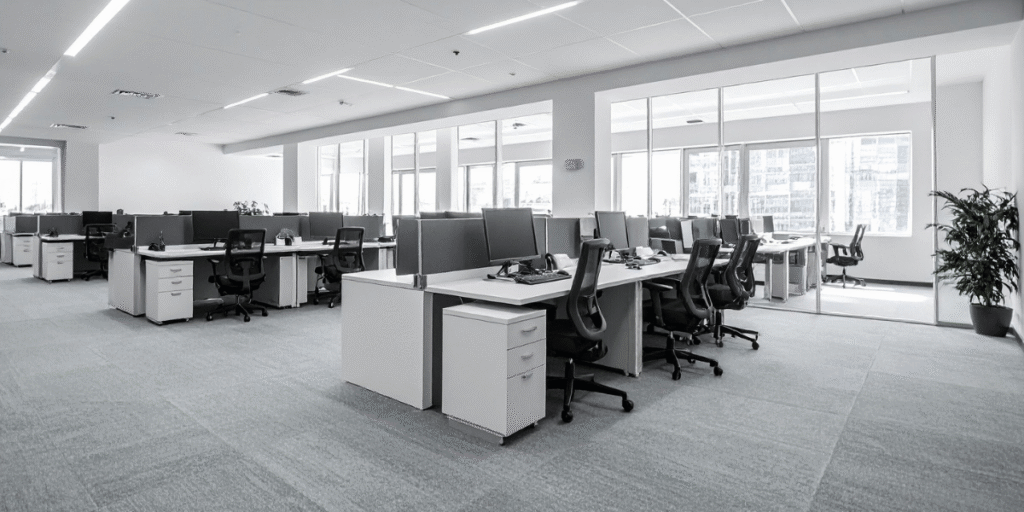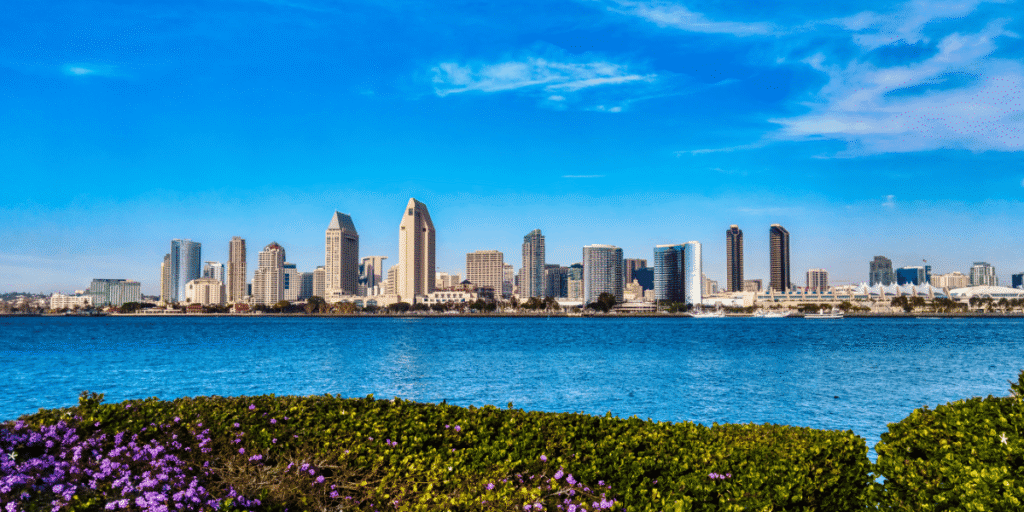The Ultimate Guide to Commercial Real Estate Down Payments

Commercial properties, also referred to as commercial real estate or income properties, encompass structures that accommodate businesses or land designated solely for generating profits, be it through rental income or capital appreciation.
This category encompasses a wide array of properties, from office buildings, medical centers, and industrial spaces to malls, hotels, retail outlets, multifamily housing, farmland, garages, and warehouses. It even extends to larger residential rental complexes.
Acquiring or renovating these properties often involves securing a commercial real estate loan. There are five primary types of these loans: SBA 7(a) Loan, CDC / SBA 504 Loan, Traditional Commercial Mortgage, Commercial Bridge Loan, and Commercial Hard Money Loan. Each loan type carries distinct terms and prerequisites.
Getting a loan for commercial property is different from getting a loan for a house. These loans usually have higher interest rates because they’re riskier for lenders. Before getting a commercial loan, there are important things to think about.
Understanding Commercial Real Estate Down Payments
When it comes to investing in commercial real estate, comprehending down payments is essential. Let’s break down what they mean and why they matter:
Definition and Role of Down Payments in Property Purchases
A down payment is the initial sum of money you contribute when buying a property.
In the world of commercial real estate, it’s a vital part of the transaction process. This upfront payment demonstrates your commitment to the deal and helps secure financing from lenders.
Differentiating Commercial Real Estate Down Payments from Residential Transactions
While down payments seem similar in both commercial and residential real estate, there are significant differences. In commercial real estate, down payments are often higher due to the larger financial stakes involved. These payments vary based on property type, loan terms, and lender requirements. Understanding these distinctions is crucial as you navigate the landscape of commercial real estate transactions.
Calculating Commercial Real Estate Down Payments
When you’re buying a commercial property, you usually need to pay a down payment. This can be done in different ways. The most common way is to use cash, but you can also use the value of another property you own or even a mix of cash and property value.
Remember, the down payment is just part of the total cost. There are other fees like closing costs and appraisal fees. So, the whole loan costs more than just the down payment.
How big the down payment is depends on a few things. If the loan lasts long, you’ll need a bigger down payment. That’s because if the loan takes longer to pay back, it’s riskier for the lender. So, they want a larger down payment to make things safer.
The interest rate also matters. If it’s higher, your monthly payments are more, which means a bigger down payment.
Before picking a lender for your commercial property loan, check out a few options. Different lenders want different down payments and offer different interest rates. By looking around, you can find the best deal for your loan.

Commercial Property Loan Requirements
Before you can get a loan for a commercial property, there are important things you need to meet. Let’s break them down:
Essential Prerequisites for Obtaining a Commercial Property Loan
To be eligible for a commercial property loan, you must meet specific conditions set by lenders.
Creditworthiness, Financial Statements, Business Plans, and More
Lenders will review your credit history to decide whether you’re a reliable borrower. They’ll also want to see your financial statements to understand your financial situation. Having a solid business plan is crucial too.
The Role of Down Payments in Loan Approval and Eligibility
Down payments play a big role in whether you can get approved for a loan. Lenders often want you to put in some of your own money. This shows your commitment and makes them more comfortable giving you the loan.
Understanding these requirements is key to preparing yourself for the loan application process in the world of commercial real estate.
Strategies for Managing Commercial Lease Down Payments
When it comes to leasing commercial properties, there are strategies to handle down payments. Let’s delve into them:
- Exploring Options for Leasing Commercial Properties
- Leasing a commercial property offers flexibility. You can explore different options based on your needs, whether it’s a short-term or long-term lease.
- How Lease Agreements Differ from Purchase Transactions
- Lease agreements are different from buying properties. Instead of ownership, you get to use the space for a specific period. This means you don’t need a large upfront payment like in buying.
- Handling Security Deposits and Upfront Payments in Leases
- Lease agreements often involve security deposits or other upfront payments. These show your commitment to the property and can be used to cover damages or unpaid rent.
The Advantages of a Big Down Payment
When you’re getting a commercial property loan, the size of your down payment matters a lot. A bigger down payment often leads to lower interest rates and reduced loan costs. It can even help you avoid private mortgage insurance (PMI).
A larger down payment can also impress sellers. They might be more willing to accept your offer if they see you’re financially secure.
But there are downsides to a big down payment. You might have less money for repairs or other things you want to do. You could also miss out on different investment chances if you spend too much on one property.
Deciding how much to put down on a commercial property loan is personal. There’s no one-size-fits-all answer. Think about your options and choose what works best for your money goals and how much risk you’re comfortable with.
Getting the Best Interest Rate for Your Commercial Property Loan
Interest rates directly impact how much you pay for your loan. Lower rates mean lower monthly payments. This also holds true for commercial property loans, where aiming for the lowest interest rate can mean big savings over time.
Boosting your chances of a low-interest rate involves a few key steps. Start by shopping around. Speak with different lenders and compare their rates. Having a strong credit score matters too. The better your score, the lower your interest rate can be.
Opting for a shorter loan term is another avenue for reducing your interest rate. While this might lead to higher monthly payments, you’ll also pay less in overall interest.
Consider putting down a larger down payment as well. This signals to lenders that you’re committed and invested, which could lead to a lower interest rate.
By using smart strategies and tools like the Plenti loan calculator, you’ll be in a better position to lock in the lowest possible rate for your commercial property loan.
Looking for Further Assistance? Reach Out to IPG Now!
IPG is your go-to for leasing, acquisitions, dispositions, and property management of various property types, including industrial, land, medical, office, retail, and multifamily properties. Boasting over two decades of experience in San Francisco’s commercial real estate landscape, we are primed to guide clients toward their financial and business aspirations.
Need insights on commercial property loans? Connect with us for more details. We’re here to discuss your requirements, address queries, and simplify the intricacies of purchasing commercial properties.




